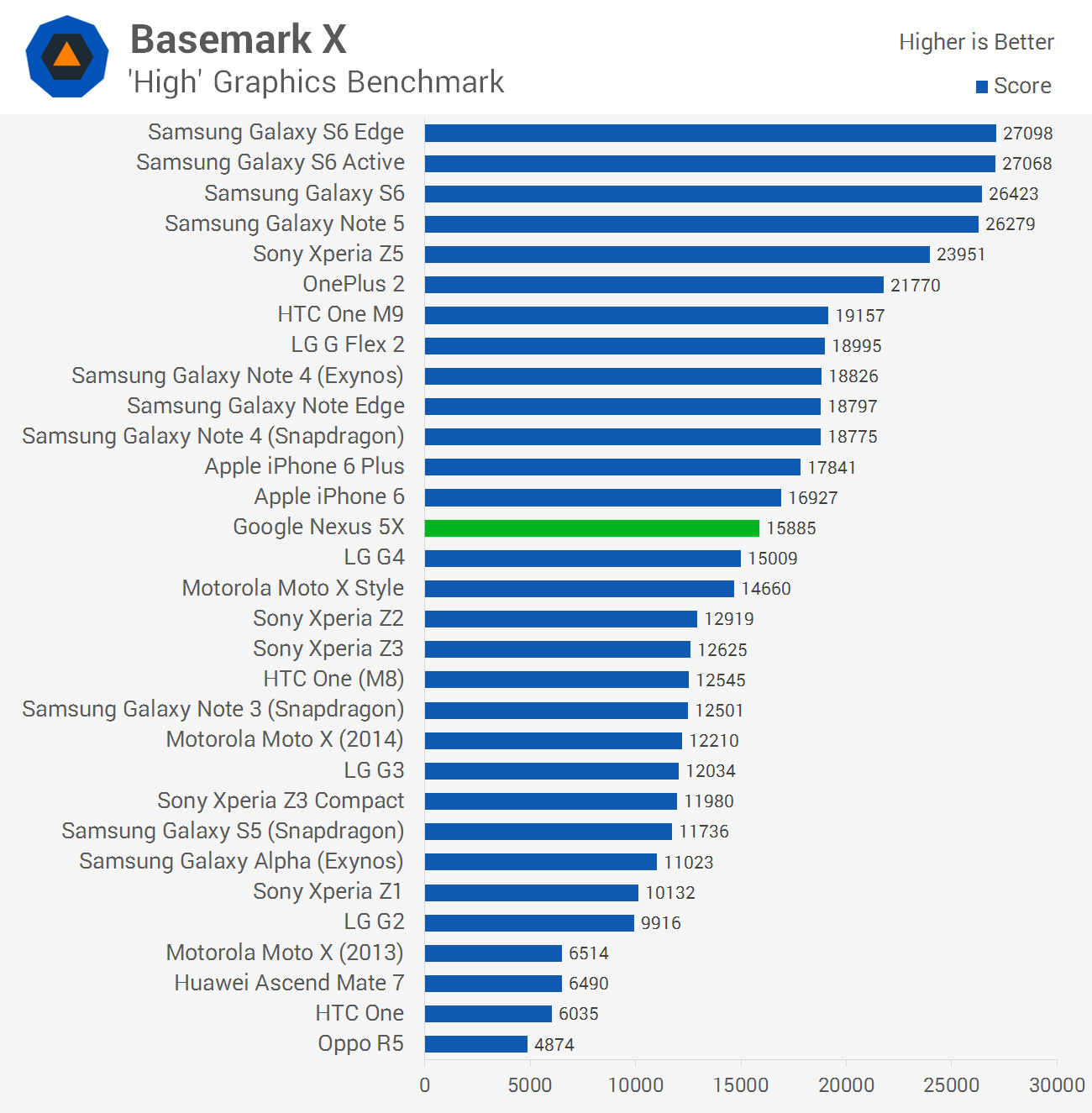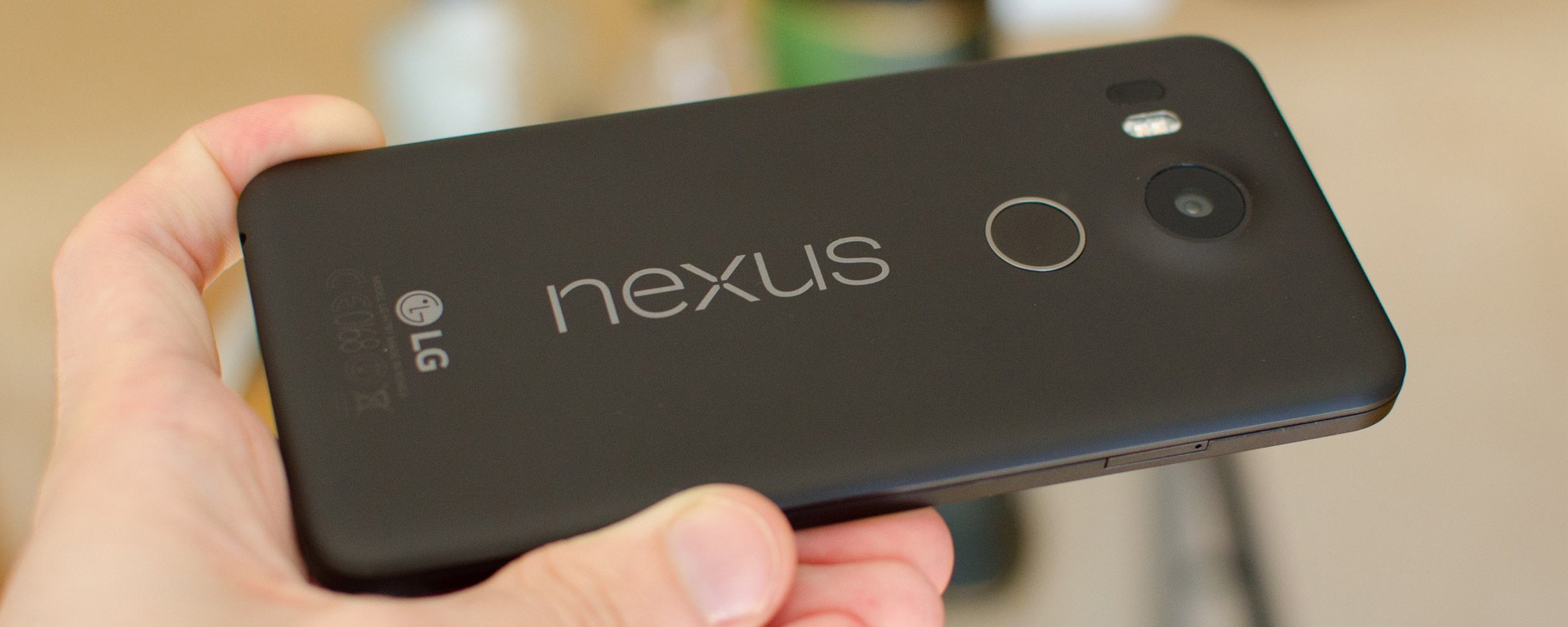GPU and NAND Performance
The Snapdragon 808's Adreno 418 GPU is more than capable for playing most games available in the Play Store, especially at 1080p. There were a few intensive titles that weren't as smooth as I'd like when playing at maximum settings, though these games (Grand Theft Auto: San Andreas, for example) do include graphics sliders that allow you to get great performance.




In general, the Adreno 418 is quite a bit slower than the Adreno 430 in the Snapdragon 810, with the latter boasting performance around 50% better. Devices with the Snapdragon 810 and a 1080p display, like the HTC One M9 or the Sony Xperia Z5, will have a decent performance advantage over the Nexus 5X. On the other hand, while the Galaxy S6's Mali-T760 MP8 GPU is 36% faster than the Adreno 418 in the 5X, the jump up to a 1440p display gives the 5X 19% better performance in games.

One thing is clear when using the Nexus 5X: the handset suffers from SoC throttling, especially when the GPU is being heavily utilized. Between benchmark runs the 5X's performance noticeably degraded, and the graphs above show a reduction in performance across a 25 minute GPU intensive run.
I suspect this is mostly due to poor thermal management, as the Nexus 5X gets pretty warm around the top of the handset, which is where the SoC is located. Interestingly, the throttling seems to be more severe than on the LG G4, which is LG's other handset utilizing a Snapdragon 808 SoC. I don't expect throttling will affect anything but 3D games, so it's not a huge issue even though it's present.


Thanks to Google's mandatory storage encryption on Nexus devices, the Nexus 5X's NAND performance, particularly write performance, is not great. The Galaxy S6, for example, is around twice as fast as the Nexus 5X in this department, while the iPhone 6s is in a league of its own. This leaves the 5X lagging behind other smartphones in app loading times, and on occasion this is noticeable in everyday usage (especially in comparison to the iPhone 6s).
While storage encryption is good from a privacy perspective, the current implementation is not great on performance. This is one of the reasons the Nexus 5X has an average PCMark overall score despite scoring in the top five devices for CPU-intensive workloads.
